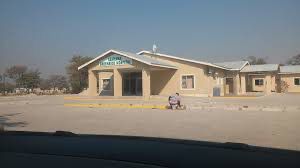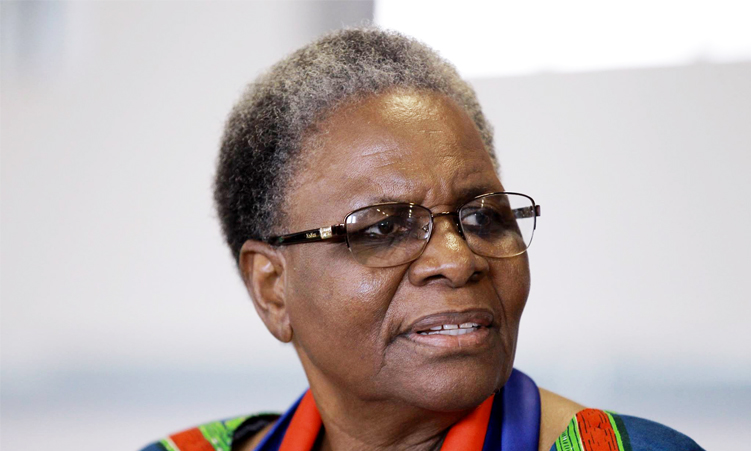RECENT local government elections have illustrated certain trends, some positive, others negative, but all of which should be taken into account for the next set of elections lying ahead this year.
Overall, the elections went reasonably well, and one of the most positive trends for democracy was that people appear to have started voting on issues, rather than resort to emotive party-political ballots – especially in towns that have seen problems with mismanagement in the recent past. One of the suggestions for the future – to capitalise on people becoming more issue-oriented when casting their ballots – is to introduce a ward system at municipal council level.This would ensure that elected officials serve, and keep in touch with, the communities they come from, rather than aiming to please their political party bosses.There was some response from voters that councillors fail to keep their fingers on the pulse of their respective communities, and that they only hear from them when elections are upon the country.Again it was evident that in areas where there had been political interference with candidate lists from party hierarchies, people tended to go against the parties that tried to prescribe.Political parties have to accept that communities know their local leaders, and they should in future refrain from interfering and leave these choices to the people who know their candidates best.Voting turnout overall appears to be down, and political parties may need to come up with innovative strategies in future elections to offset what appears to be increasing apathy.Although local government voting statistics this time around are higher than they were five years ago (44 per cent as opposed to 34 per cent at the last elections), they are still far below the euphoric figure of 82 per cent for the municipal elections in 1992.Another positive trend is that women’s representation has increased, although by a fairly small margin.But it was significant that most political parties put most of their women candidates lower down their lists, apparently certain they weren’t going to poll many votes.One of the major problems appeared to be the rather cumbersome process with regard to the voter’s roll, and it took time to check whether voters were on it or not.This would seem to indicate a pressing need for computerisation of these systems in future.Counting of ballots was also a slow-going process, and as the Director of Elections, Victor Tonchi himself, acknowledged, this will need to be speeded up in the future.Smaller problems included an area with too few ballot papers and problems with counting, but these did not interfere with the overall free and fair nature of the process.Local government elections usually involve ‘bread and butter’ issues, compared to the elections for the national parliament later this year.Parties tend not to accord local government elections the significance they deserve; and we are gratified to note that, although it is not yet established practice, more people were nevertheless looking at issues rather than simply personalities or parties.There are lessons to be learned from these elections: one is that the percentage poll needs to be looked at so that these figures can be increased in future in order to make the election results more inclusive of a majority of the population; and also, the Electoral Commission needs to pay serious attention to the technical processes which could make for speedier voting and counting.It would be welcome if some of these changes could take place prior to our next set of elections.One of the suggestions for the future – to capitalise on people becoming more issue-oriented when casting their ballots – is to introduce a ward system at municipal council level.This would ensure that elected officials serve, and keep in touch with, the communities they come from, rather than aiming to please their political party bosses.There was some response from voters that councillors fail to keep their fingers on the pulse of their respective communities, and that they only hear from them when elections are upon the country.Again it was evident that in areas where there had been political interference with candidate lists from party hierarchies, people tended to go against the parties that tried to prescribe.Political parties have to accept that communities know their local leaders, and they should in future refrain from interfering and leave these choices to the people who know their candidates best.Voting turnout overall appears to be down, and political parties may need to come up with innovative strategies in future elections to offset what appears to be increasing apathy.Although local government voting statistics this time around are higher than they were five years ago (44 per cent as opposed to 34 per cent at the last elections), they are still far below the euphoric figure of 82 per cent for the municipal elections in 1992.Another positive trend is that women’s representation has increased, although by a fairly small margin.But it was significant that most political parties put most of their women candidates lower down their lists, apparently certain they weren’t going to poll many votes.One of the major problems appeared to be the rather cumbersome process with regard to the voter’s roll, and it took time to check whether voters were on it or not.This would seem to indicate a pressing need for computerisation of these systems in future.Counting of ballots was also a slow-going process, and as the Director of Elections, Victor Tonchi himself, acknowledged, this will need to be speeded up in the future.Smaller problems included an area with too few ballot papers and problems with counting, but these did not interfere with the overall free and fair nature of the process.Local government elections usually involve ‘bread and butter’ issues, compared to the elections for the national parliament later this year.Parties tend not to accord local government elections the significance they deserve; and we are gratified to note that, although it is not yet established practice, more people were nevertheless looking at issues rather than simply personalities or parties.There are lessons to be learned from these elections: one is that the percentage poll needs to be looked at so that these figures can be increased in future in order to make the election results more inclusive of a majority of the population; and also, the Electoral Commission needs to pay serious attention to the technical processes which could make for speedier voting and counting.It would be welcome if some of these changes could take place prior to our next set of elections.
Stay informed with The Namibian – your source for credible journalism. Get in-depth reporting and opinions for
only N$85 a month. Invest in journalism, invest in democracy –
Subscribe Now!






